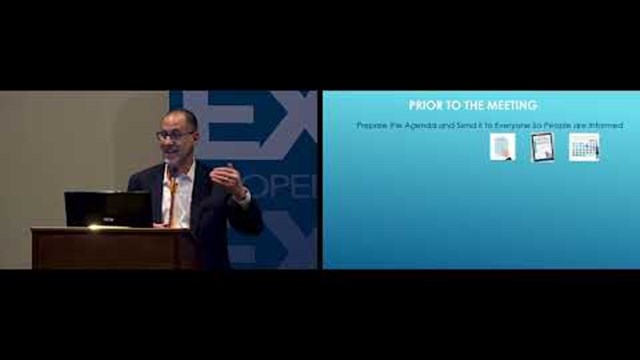
Having served the greater New York co-op and condo community for more than 60 years, Argo Real Estate is fully committed to educating and supporting its board members. Argo University is a quarterly educational session for co-op and condo board members where industry experts are invited to share their insights on relevant topics. These seminars are real-time problem solving sessions where experts and board members go over important issues facing residential properties today.
A recent Argo University session covered how to run a successful board meeting. With more than 10 years of experience as a property manager in New York City before stepping into my current role as Director of Client Relations, I have been to my fair share of residential board meetings and was able to offer key insights into how to most effectively and efficiently run these meetings. Here are some of the key takeaways:
• What is the purpose of a board? A condo or co-op board is the designated group of unit owners or shareholders, respectively, whose mission it is to manage the business of the building. The building, while being a place of residence, is also real property, which is an asset. Members of the board take on a fiduciary responsibility to protect and grow its asset.
• How often should a board meet? In order to successfully govern the building, Argo recommends that board members hold regular board meetings. Regular board meetings can vary from monthly, to quarterly, to semi-annually, as long as they are held in accordance with the building’s governing documents. Board meetings should be conducted in an efficient and effective manner based on the length of business to transact and/or amount of topics on the agenda.
• How should boards conduct themselves? To best manage the property, boards should follow a Code of Ethics and Conduct. A Code of Ethics and Conduct is a set of guidelines and protocols boards should follow to ensure that the co-op or condo’s best interests are pursued during board meetings. These guidelines indicate that boards should not use their position for personal profit, gain or other personal advantage, and that boards should seek to comply with applicable laws, codes, contracts and agreements to which the building is currently obligated. The Code of Ethics and Conduct also addresses how to handle any conflicts of interest that may come about, and any instances in which a board member should recuse himself or herself. For a sample Code of Ethics and Conduct, a board member may contact their property manager and/or the building’s attorney. Alternatively, please feel free to contact me at (212) 896-8684 or cynthiag@argo.com and I would be happy to provide you with one.
• Who should chair the board meetings? Argo advises that the property manager chair the board meetings. Property managers are equipped with the knowledge and expertise to:
a) Create the board meeting agenda
b) Efficiently and effectively lead the meeting by following the agenda
c) Manage the discussions to ensure that board members stay on topic
d) Answer, or obtain the answer to, questions
e) Help boards mediate and resolve issues
f) Handle conflict between board members, and on behalf of board members
g) Put forth a topic for boards to vote on or make a decision as a group
• What are meeting minutes? What should be included in the minutes? Meeting minutes are a written record of board meetings and are required by New York State law. They serve as a written record of votes and decisions made by the board. Minutes should be concise and include:
a) Any decisions made by the board/action items
b) The names of all meeting attendees
c) The date of the meeting
d) The time the meeting began and ended
e) Approval/amendment of the previous minutes (if applicable)
f) The date and time of the next meeting
While the agenda of a board meeting can cover an array of topics, notes from all discussions do not need to be incorporated in the minutes, only those in which a point of action was made. Minutes may be taken by the Board Secretary, Assistant Secretary, Property Manager, or any other appointed recorder of the minutes. Minutes are not required to be filed with the state, and may be kept on file with the corporate records.
To learn more about Argo University and upcoming events and seminars, visit Argo’s website at www.argo.com.
Cynthia Graffeo is a property manager and a director of client relations at Manhattan-based Argo Real Estate.









Comments
Leave a Comment